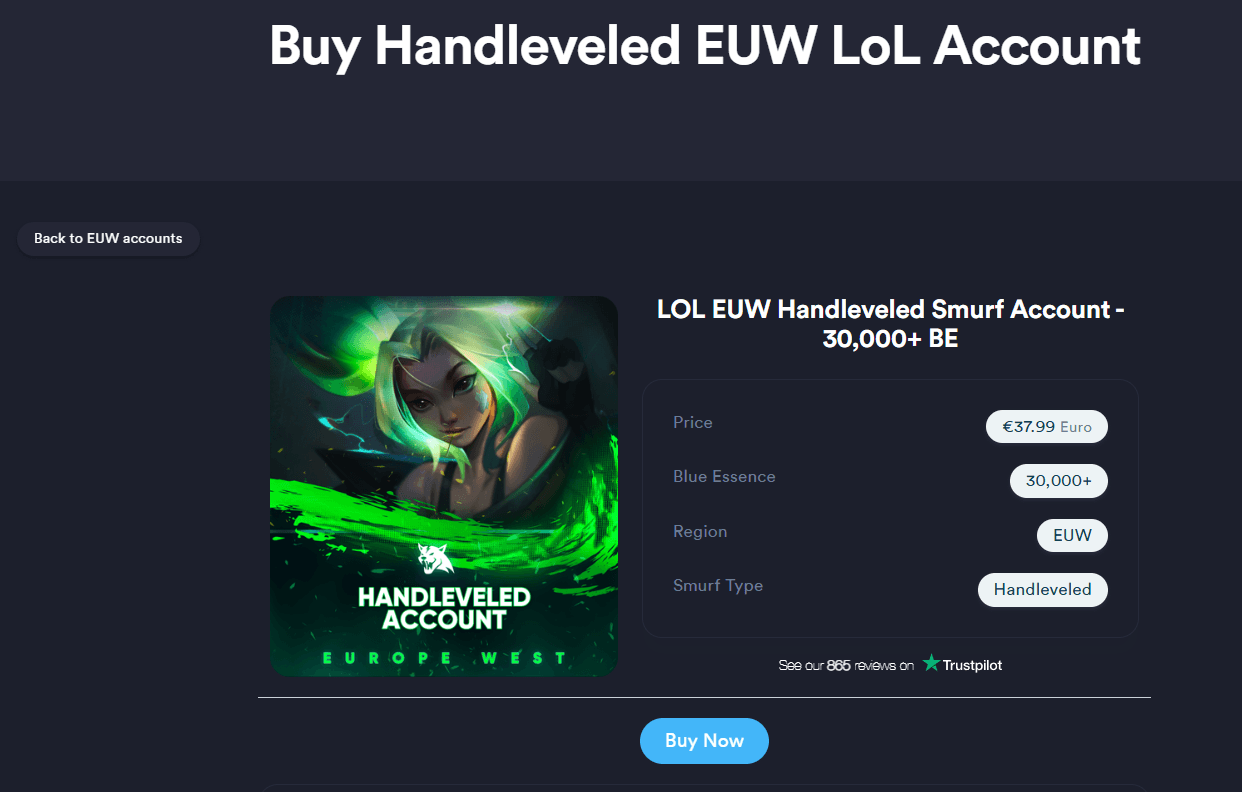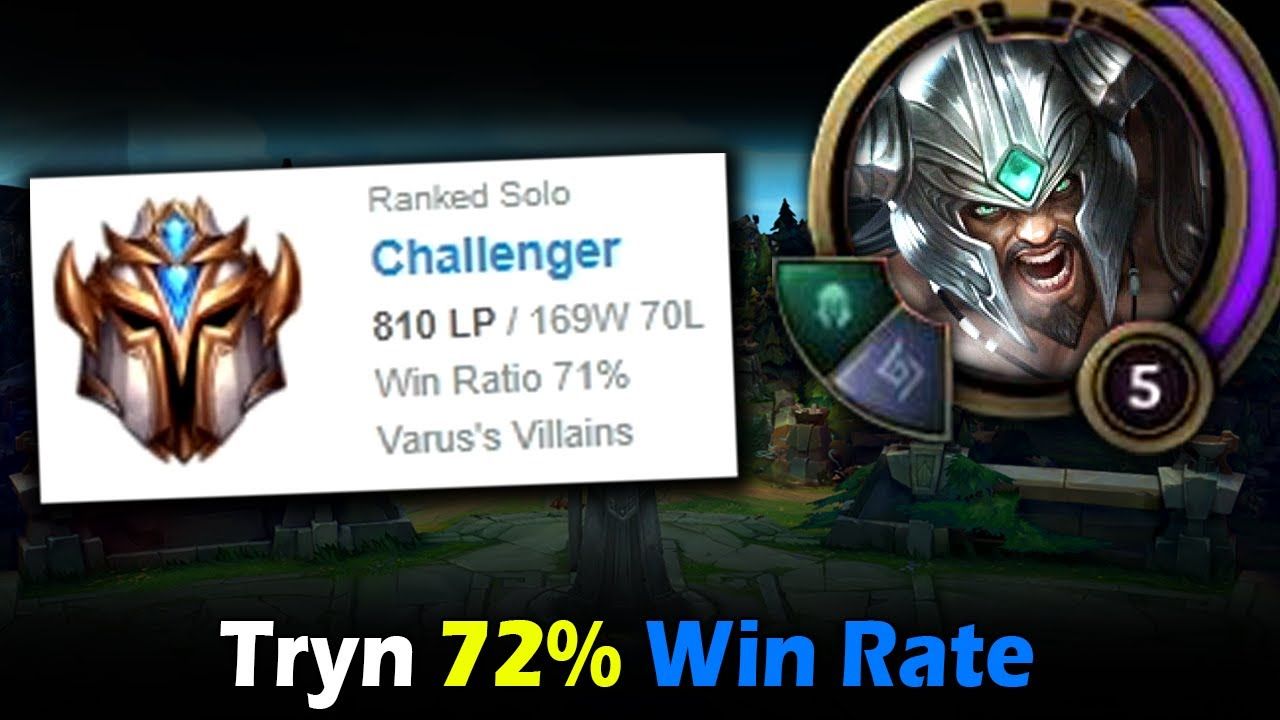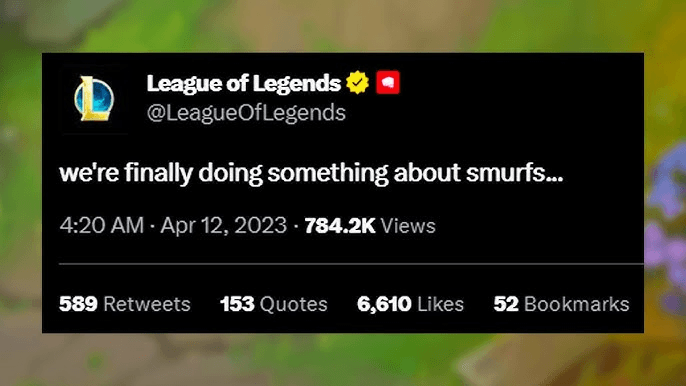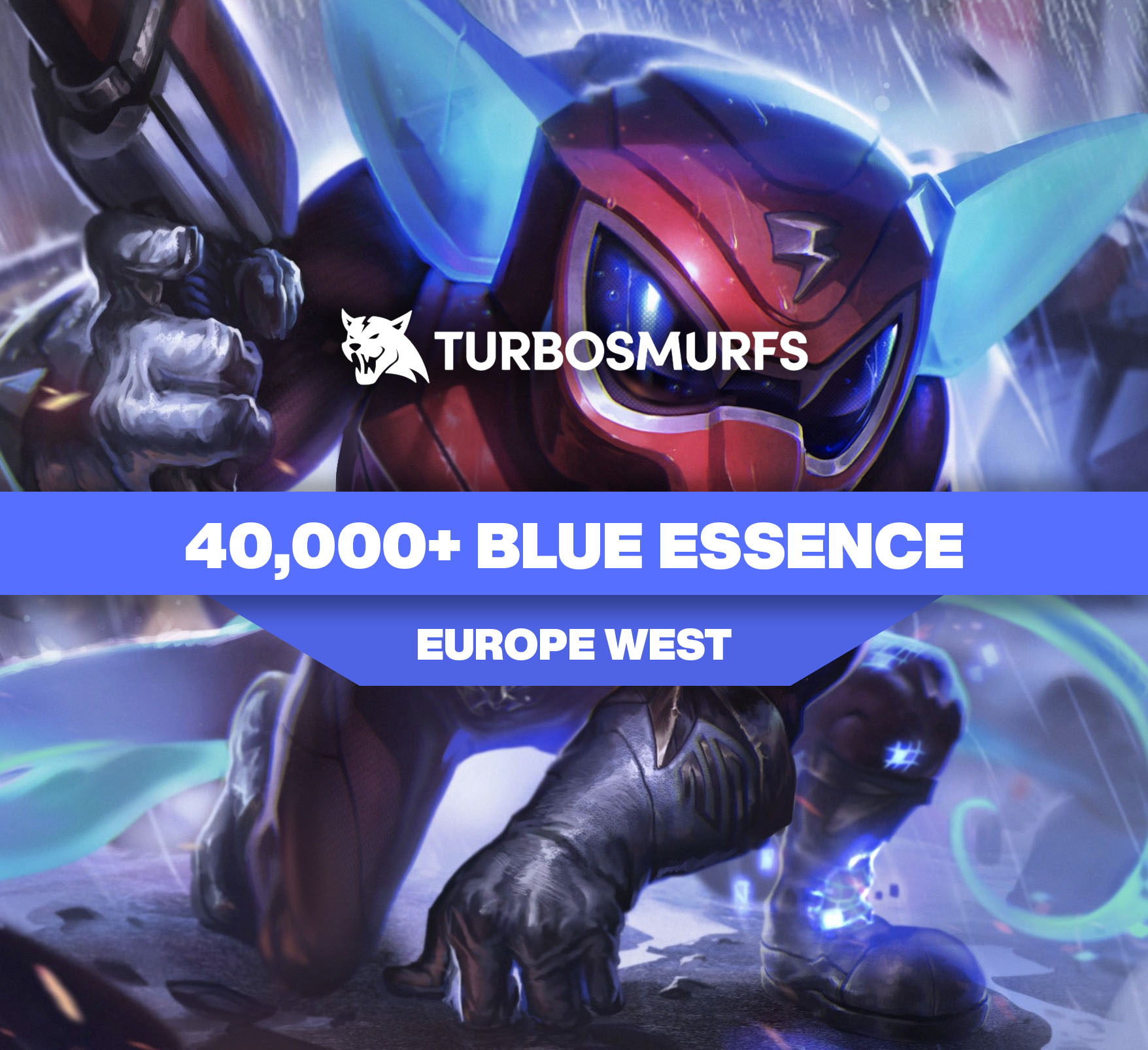
What Are Smurf Accounts? A League of Legends Guide


A smurf account in League of Legends represents a secondary account created by experienced players to compete against lower-skilled opponents. These alternate accounts start from unranked status, placing veteran players in matches with significantly less experienced competitors. The practice spans across all skill levels in both ranked and casual gameplay modes.
The term "smurf" traces back to 1996 within the Warcraft II community. Two elite players, Geoff 'Shlonglor' Frazier and Greg 'Warp!' Boyko, had reached such a skill level that other players consistently avoided matches after recognizing their usernames. Their solution involved creating new accounts named "PapaSmurf" and "Smurfette," masquerading as beginners while dominating unsuspecting opponents. The League of Legends community adopted this terminology, and it has remained the standard reference for alternate accounts.
Smurf accounts display distinct characteristics that separate them from genuine new player accounts. These accounts belong to high-tier players whose game knowledge and mechanical skills far exceed their displayed level or ranking. The result creates significant skill gaps in matches, producing unbalanced gameplay for authentic newcomers.
The purposes behind smurfing extend well beyond dominating lower-ranked players. Experienced summoners frequently create secondary accounts to practice new champions or test strategies without jeopardizing their main account's ranking. Other players use these accounts to queue with lower-skilled friends, avoiding the harsh competition their friends would face at higher ranks. Professional players and content creators maintain smurf accounts to showcase climbing techniques or produce educational content demonstrating rank progression.
Riot Games, the developer of League of Legends, maintains an official position on smurfing. The company doesn't endorse the practice outright, but acknowledges the massive challenges involved in addressing it across their enormous player base, particularly given how easily new accounts can be created. That said, Riot takes direct action in proven smurfing cases that damage gameplay quality, especially within organized competitions like Clash, targeting both the smurf account and occasionally the player's main account.
The prevalence of smurfing has created notable impacts on match balance across the game, particularly affecting newcomers who encounter opponents with skills vastly superior to their apparent rank. This phenomenon generates ongoing discussions within the League community about its effects on competitive integrity and fair play.
Why Do Players Use Smurf Accounts?

Smurf accounts serve multiple strategic purposes for League of Legends players across all skill levels. The reasons behind smurfing extend far beyond simple domination of lower-ranked opponents.
Practicing new champions or roles
High-ranked players face a significant dilemma when attempting to master new champions or roles. Experimenting with unfamiliar picks at their true skill level often results in immediate punishment from equally skilled opponents. Smurf accounts solve this problem by providing a controlled environment where players can develop new techniques without jeopardizing their main account's standing.
This practice environment proves essential for mechanical skill development and strategic understanding. Players can focus entirely on mastering specific champion abilities or role responsibilities without the pressure of maintaining their established ranking.
Playing with lower-ranked friends
Skill disparities between friends create one of the most common motivations for smurfing. When Diamond or Master players want to enjoy casual games with Silver or Gold friends, their main accounts would expose those friends to opponents far beyond their capabilities.
Alternate accounts enable friends of varying skill levels to compete together without creating overwhelming matchups. These shared gaming sessions often provide valuable mentoring opportunities while maintaining an enjoyable experience for all participants.
Avoiding rank pressure or anxiety
Smurf accounts offer an escape from the intense pressure that accompanies high-level ranked play. Master and Challenger players understand that every match on their main account carries enormous weight, potentially affecting months of careful rank progression.
Secondary accounts provide a space for experimentation and relaxation without the constant worry about LP gains or losses. This freedom from competitive stress allows players to rediscover their enjoyment of the game when their main account becomes too mentally taxing.
Creating content or streaming
Content creators frequently rely on smurf accounts to produce engaging videos and educational material. These accounts enable streamers to showcase dramatic skill differences and impressive plays that appeal to their audiences. The entertainment value of watching high-level players dominate matches has proven popular across streaming platforms.
Many creators justify this practice by claiming educational value, arguing that their smurf content demonstrates advanced techniques and game knowledge to aspiring players.
Reducing queue times at high ranks
Queue times at the highest levels of ranked play can extend well beyond acceptable limits for active players. Master, Grandmaster, and Challenger players often face 10-15 minute waits as the matchmaking system struggles to find opponents of similar skill.
Professional players and full-time streamers particularly benefit from shorter queue times, as extended waits significantly impact their practice schedules and content creation efficiency. Smurf accounts provide immediate access to matches, making them a practical necessity for players who depend on consistent gaming schedules.
Smurfing Impact on League of Legends Community

Smurf accounts create significant disruptions across the League of Legends ecosystem, affecting players at every skill level and creating imbalanced gaming environments.
Matchmaking Disruption and Skill Gaps
Smurf accounts break the matchmaking system that's designed to create fair and competitive matches. High-skilled players competing at lower ranks produce heavily skewed matchups that lack any real competition. These imbalanced games result in one-sided stomps where teams face completely uneven opposition. Players regularly report matches where smurfs dominate so heavily that the outcome becomes clear within the first five minutes.
New Player Discouragement
Newcomers face crushing experiences against smurfs that damage their learning process. The massive skill differences overwhelm beginners rather than teaching them anything useful. Many new players uninstall League of Legends after just a few matches due to these negative encounters. Community reports describe early games as nothing more than "a competition to see which team has less newbies".
Ranking System Distortion
Smurfs artificially mess with the ranking system's accuracy by inflating or deflating ranks across different tiers. This distortion prevents players from accurately measuring their skill level or tracking their improvement. The result is what the community calls "elo hell," where skilled players can't climb despite their actual abilities.
Community Division
The League community remains split on smurfing practices. Some players treat it as a harmless way to play the game differently, while others consider it cheating that destroys competitive integrity. This disagreement fuels ongoing arguments about fair play and proper gaming ethics.
Riot Games Approach to Smurfing

Riot Games has developed multiple systems to address smurf accounts across League of Legends without completely banning the practice. Their strategy focuses on detection and separation rather than elimination.
Advanced Detection and Matchmaking Systems
Riot's detection systems identify suspected smurfs and place them in separate matchmaking pools away from genuine new players. The 2025 implementation of Vanguard anti-cheat technology enhanced these capabilities, providing better recognition of smurf behavior patterns.
The True Skill 2 (TS2) project represents a significant improvement in MMR detection accuracy. This system now places high-skill players in appropriately skilled games after approximately five matches, which is three times faster than previous detection methods.
Clash Tournament Regulations
Clash tournaments operate under stricter anti-smurfing rules. Riot defines smurfing in Clash as playing on an account ranked more than two divisions below a player's highest-ranked account. SMS verification acts as the primary prevention tool, while penalties affect entire teams through tournament bans and reward forfeiture.
Account Actions and Penalties
Riot takes direct action against proven smurf cases, targeting both the secondary account and sometimes the main account. Patch 25.18 introduced a major crackdown in September 2025, specifically targeting purchased accounts, boosting services, and hitchhiking.
Current Development and Community Response
Riot continues developing solutions throughout 2025 for competitive integrity issues, including accounts created to bypass penalties. The company maintains ongoing dialogue with players about smurfing, acknowledging the challenges of addressing the issue at scale given League's massive player base.
FAQs
Q1. What exactly is a smurf account in League of Legends? A smurf account is a secondary account created by an experienced player to play against lower-skilled opponents. These accounts allow veteran players to start from scratch and compete in matches with less skilled players.
Q2. Why do players create smurf accounts? Players create smurf accounts for various reasons, including practicing new champions or roles without risking their main account's ranking, playing with lower-ranked friends, avoiding competitive pressure, creating content for streaming, and reducing queue times at high ranks.
Q3. Is smurfing allowed in League of Legends? While Riot Games doesn't explicitly endorse smurfing, they don't ban it outright due to the challenges of addressing it at scale. However, they do take action against proven cases of smurfing that negatively impact gameplay, especially in organized competitions like Clash.
Q4. How does smurfing affect the game's community? Smurfing can disrupt fair matchmaking, discourage new players, distort the ranking system, and create tension within the community. It often leads to unbalanced games where teams are unevenly matched, potentially ruining the experience for genuine new or lower-ranked players.
Q5. What measures has Riot Games implemented to address smurfing? Riot has introduced detection systems to identify and separate suspected smurfs, implemented penalties for smurfing in Clash tournaments, and occasionally bans or restricts accounts involved in proven smurfing cases. They also continue to develop solutions and maintain open dialog with the community about this issue.

